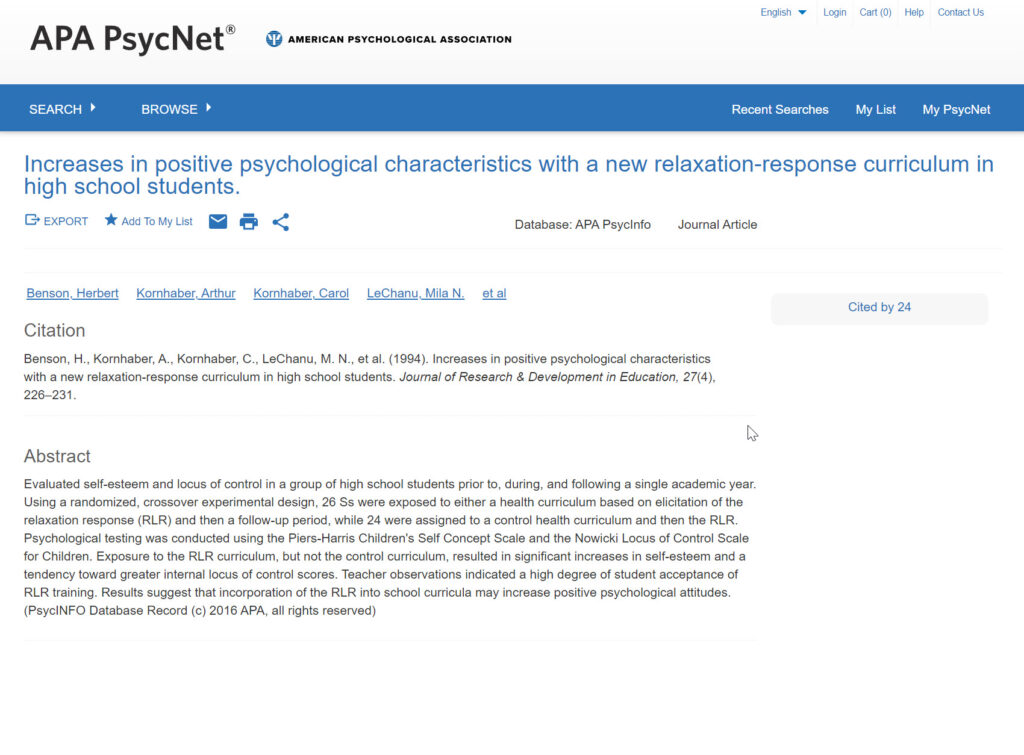Evaluated self-esteem and locus of control in a group of high school students prior to, during, and following a single academic year. Using a randomized, crossover experimental design, 26 Ss were exposed to either a health curriculum based on elicitation of the relaxation response (RLR) and then a follow-up period, while 24 were assigned to a control health curriculum and then the RLR. Psychological testing was conducted using the Piers-Harris Children’s Self Concept Scale and the Nowicki Locus of Control Scale for Children. Exposure to the RLR curriculum, but not the control curriculum, resulted in significant increases in self-esteem and a tendency toward greater internal locus of control scores. Teacher observations indicated a high degree of student acceptance of RLR training. Results suggest that incorporation of the RLR into school curricula may increase positive psychological attitudes. (PsycINFO Database Record (c) 2016 APA, all rights reserved)
Increases in positive psychological characteristics with a new relaxation-response curriculum in high school students.
Publication
Journal of Research and Development in Education
27(4), 226-231
Abstract
Web and Email Links
Related Listings
Journal
Behavioral Medicine
This randomized, prospective study investigated the effectiveness of two group behavioral medicine interventions for primary care patients experiencing physical symptoms with a psychosocial component (eg, palpitations, gastrointestinal disturbances, headaches, malaise, sleep disorders). The subjects were 80 volunteers at a health maintenance organization (HMO) in the greater Boston area. Both interventions focused on the mind/body relationship and used didactic material, relaxation-re […]
Journal
Calmer
In light of World Sleep Day this month, this week’s guest post features Valerie Teh, Calmer’s Client Manager and Self-Care Practitioner, who shares her expertise on how to explore and embrace intelligent rest to enhance quality sleep and nurture your overall wellbeing.
Journal
Neuroscience News
The ability of an adult to learn and to perform cognitive tests is directly linked to how active the brain is at rest, UNSW researchers have found.

